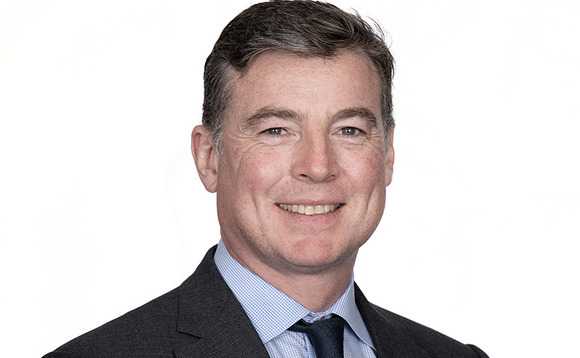
Q&A: 17Capital's Thomas Doyle

Thomas Doyle, a partner at portfolio finance specialist 17Capital, discusses the firm’s relationships with its GPs and LPs, the mechanics of investing in this space and the future of the sector
What do your LPs like and dislike about investing in your vehicles?
What they really like about us is the consistency of our contractual returns and the downside protection implicit in all our transactions, owing to the portfolio of assets underpinning our structures. Our preferred equity product has attracted investors who are looking for equity-like returns with lower volatility. Investors in our credit product are often seeking an alternative or complement to direct lending.
What do you look for in an investment?
It is very simple for us. Everything starts and finishes with the quality of the manager. What is its history of investments and divestments? Will the GP be able to sell its assets to realise proceeds? What is the resilience of the fund manager and the team? The main question is, will the manager be a good steward for our investment?
All our facilities are bespoke. It is not a one-size-fits-all market and that is the key skill we offer: the ability to tailor individual transactions and provide additional capacity with a non-dilutive aspect. Managers really appreciate and benefit from the flexibility of our products.
If your products continue to become more popular in the private equity industry, do you expect the risk of realised losses to increase in the future?
There are very few players in our field right now. We have done 61 transactions globally in 13 years, and very few other players have gone through a whole cycle. We have had 30 realisations, and while there have been NAV declines through cycles, that has never resulted in a realised loss for us due to the portfolio diversity and asset coverage we bake into our transactions. We are also highly selective and absolutely refuse managers that we do not think fit with our criteria. We had €20bn's worth of enquiries last year and we only transacted on €1.5bn's worth of deals, so a lot really does come down to the quality of the manager.
As fund-level financing becomes increasingly adopted by LPs and GPs who understand the benefits of this tool, the market will undoubtedly grow and adapt to economic cycles. In the current cycle there is increased risk, but we can adjust for that, such as insisting upon greater diversity in the portfolio or having a lower attachment point. This is not affecting our appetite to invest; we are continuing to deploy capital prudently and we actually had record deployment in 2020.
How do you originate your loans?
We place an awful lot of importance on direct origination. We have readjusted to the Zoom lifestyle, but wearing down our shoe leather since our foundation in 2008 has meant we are now well-known. I would also say that we focus a lot now on social media and we provide a lot of educational content for those considering us out there.
There has been huge interest this year and, as market acceptance of the benefits of this type of financing increases, people who would have said they would never use our products a few years ago are now considering these facilities, which has been hugely gratifying. It is pleasing to know that people are realising this is a really efficient tool and now they are looking at preferred equity and our credit programme the same way they look at subscription-line funding or direct lending.
How do you approach your GP relationships?
With our managers on the preferred equity side, they should see us as a senior investor in the portfolio. We do not have the right to enforce security and would have similar requirements as a senior limited partner investor. The LP/GP relationship is a good proxy. On the credit side, we have examples that represent varying degrees of our ability to enforce and take affirmative action.
Do you have any recommendations for how GPs should act towards LPs when taking out this financing?
As a firm we have completed more than 60 of these transactions, and as such we have the experience to bring something to the table for when GPs engage with their LPs. However, we do not engage directly with the clients' investors ourselves. We are simply there to provide advice and guidance. Clear explanation and communication of how the financing is value-accretive for LPs is important, but ultimately it is simple – if you are a poorly performing GP with poor relationships with your LPs, then our model will not work. We only work with the highest-quality managers.
How common do you foresee these instruments becoming in the future?
Why shouldn't all GPs be using it? When subscription lines first came to the market, they were either frowned upon or used for no more than 30 days. Now look at the market: it is used by the majority of fund managers and it is an accepted part of the market. Our products provide real added value with extra flexibility and without dilution, so we see no ceiling for the adoption of NAV-based financing as a standard tool for portfolio management.
Latest News
Stonehage Fleming raises USD 130m for largest fund to date, eyes 2024 programme
Sponsor acquired the public software group in July 2017 via the same-year vintage Partners Group Global Value 2017
Stonehage Fleming raises USD 130m for largest fund to date, eyes 2024 programme
Czech Republic-headquartered family office is targeting DACH and CEE region deals
Stonehage Fleming raises USD 130m for largest fund to date, eyes 2024 programme
Ex-Rocket Internet leader Bettina Curtze joins Swiss VC firm as partner and CFO
Stonehage Fleming raises USD 130m for largest fund to date, eyes 2024 programme
Estonia-registered VC could bolster LP base with fresh capital from funds-of-funds or pension funds









